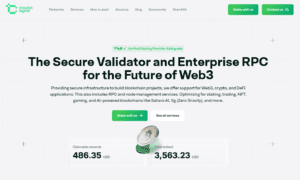FinOps (Cloud Financial Operations) marks a significant shift in managing the financial aspects of cloud computing. As businesses increasingly transition their operations to the cloud, efficient financial management becomes paramount. Simplifying FinOps processes through automation enables organizations to reduce costs, enhance transparency, and make well-informed decisions. This article explores the benefits and challenges of automating cloud financial operations, alongside the evolving landscape of cloud-based financial management.
Cloud FinOps Automation:
Navigating Complexity: Cloud environments encompass a myriad of services, instances, and configurations, leading to inherent complexity. Manual management and monitoring of these components are impractical, given the high risk of human error. Automation streamlines these tasks, saving time and effort while ensuring the reliability of financial data.
Real-Time Scalability: Automation facilitates the real-time scaling and provisioning of cloud resources, allowing organizations to monitor resource utilization and align expenses with actual consumption. This capability is essential for efficient resource allocation and waste reduction.
Enhanced Cost Transparency: Automation solutions break down expenditures to the resource level, providing detailed insights that enable businesses to identify and address inefficiencies effectively.
Advantages of Automating Cloud FinOps:
Cost Optimization: Automated solutions help organizations identify underutilized resources, optimize costs, and implement cost allocation techniques to assign expenditures accurately.
Policy Enforcement: Automated enforcement of FinOps regulations, such as resource tagging for cost attribution, mitigates the risk of non-compliance and ensures consistent application of governance principles.
Predictive Modeling: Automated forecasting technologies utilize historical data to make reliable predictions about future costs, enabling businesses to optimize resource utilization and anticipate financial implications.
Challenges and Considerations:
Integration Complexity: Integrating automation solutions with existing systems and processes can be challenging, requiring meticulous planning and execution to avoid disruptions.
Skill Set Requirements: Implementing and managing automation technologies necessitates a specific skill set, potentially requiring investments in training or hiring experts in cloud FinOps and automation.
Vendor-Specific Solutions: While cloud service providers offer FinOps tools, achieving a unified approach to financial management across multiple cloud platforms may pose challenges.
The Changing Face of Cloud FinOps:
AI and Predictive Analytics: Incorporating machine learning and predictive analytics enhances the capabilities of FinOps automation tools, enabling better prediction, anomaly detection, and proactive cost management.
Serverless and Event-Driven Architectures: Adapting FinOps procedures to serverless and event-driven architectures requires automation to effectively respond to the unique characteristics of these cloud paradigms.
Policy-as-Code: The rise of the Policy-as-Code paradigm integrates FinOps policy definition and management with code, enabling automated policy enforcement, version control, and collaboration.
Emerging Styles and New Developments:
Decentralized Financial Operations: Innovations like blockchain and smart contracts enable decentralized financial operations, necessitating automation for effective management of dispersed financial resources.
Implications of Quantum Computing: Developments in quantum computing may present new threats and opportunities for cloud financial operations, highlighting the importance of automation in adapting financial management methods to quantum systems’ computational properties.
Want to save big on your cloud costs without sacrificing performance? Wiv’s AI-powered FinOps platform is here to help! It automatically handles the complicated stuff, gives you clear advice, and lets you focus on what matters most. With Wiv, you can cut costs and keep your business running smoothly.
Find out more here: https://www.wiv.ai/finops-automation/
Ongoing Development:
Iterative Optimization: Automation enables the development of feedback loops that continuously assess performance and cost data, allowing businesses to iteratively optimize their FinOps strategies to align with changing resource utilization trends.
Collaborative Decision-Making: Automation facilitates collaboration among operations, engineering, and finance teams on a unified platform, enabling data-driven decision-making and a comprehensive understanding of the financial implications of their choices.
Cloud FinOps revolutionizes enterprise cloud financial management, with automation playing a crucial role in its practical adoption. Organizations stand to benefit from automation technologies, including cost efficiency, real-time monitoring, and policy enforcement. However, navigating challenges such as integration complexity and skill set requirements is essential. Embracing automation is increasingly becoming a strategic imperative for enterprises seeking success in the era of cloud computing as the cloud FinOps landscape continues to evolve.



































